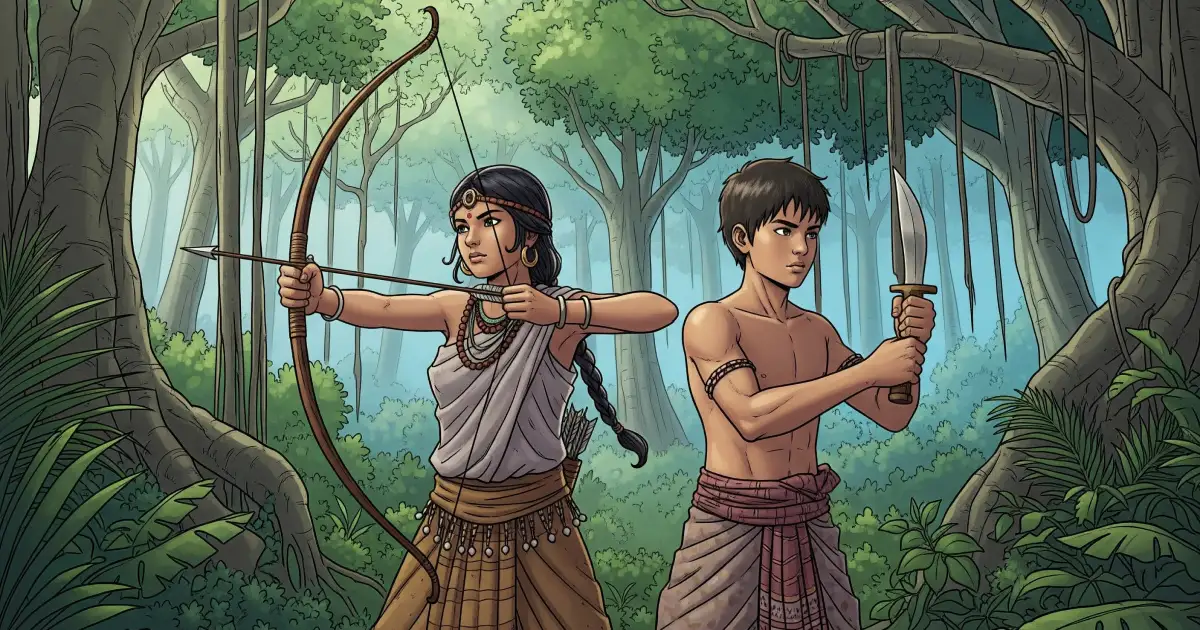The twins stalked the tiger from the tree branches, noiselessly jumping from branch to branch as the tiger confidently stalked a prey of its own. The sister was the archer, while the brother had his knife firmly grasped. It would take both the arrow and knife to bring the tiger down. They allowed it to walk further out, towards the forest’s edge where their guardians would be waiting, but the siblings wanted this kill for themselves.Their timing perfect in its unison, Prithu and Aneni unleashed their attack. Aneni shot an arrow straight to the tiger’s spine, and at the precise moment Prithu leapt to the ground. The tiger whelped in painful surprise when the arrow cut through its body, immediately silenced by Prithu’s deadly knife slicing across its throat. It bled out helplessly, and in its last moments it turned its indignant, twinkling eyes to the boy and girl who brought it down without any fair warning.The siblings exchanged a triumphant look before bending down over the tiger and examining their kill. “I will make a coat for you out of its skin,” said Prithu to his twin sister.She smiled in return, not mentioning that she had other plans with this tiger’s skin. That...
Aṇenī
Vignettes from the life of a defiant and courageous daughter of the Suryavanshis.
Amritanshu Pandey

Sign up to read this story
This story is part of our member-only exclusive access.
Upgrade to get full access to this short story and other membership benefits